If we think of Perth City Farm as a place where we try to help folks to live kinder lives, then we can easily make the link to the three foundational ethics of Permaculture which help guide our work here:
- Care for the Earth
- Care for People
- Fair Share
Permaculture had its origins in the 1970s in Tasmania through the thinking and teachings of two Australians Bill Mollison and David Holmgren. (And if we want to get parochial about it, we can claim David Holmgren as a Perth lad: he grew up in Bicton on the banks of the Swan River).
Mollison and Holmgren – and many others – could see that historical practices of human settlement in Australia and elsewhere were quickly drawing down on the Earth’s capital. Not sustainable; not permanent.
So how could we devise a system of production which was based on permanent agriculture and a permanent culture?
The answer appeared to lie in Nature herself, as one of Mollison’s explanations shows:
“The conscious design and maintenance of agriculturally productive systems which have the diversity, stability, and resilience of natural ecosystems. It is the harmonious integration of the landscape with people providing their food, energy, shelter and other material and non-material needs in a sustainable way.”
We continue to see many of the pressures Mollison and Holgrem were observing – climate change, air and water pollution, land degradation, habitat and species loss.
But permaculture offers a positive way to respond, allowing humans to live good and connected lives, respecting all life while rebuilding Earth’s life support systems.
“Though the problems of the world are increasingly complex, the solutions remain embarrassingly simple.” ― Bill Mollison
The Principles of Permaculture are design principles that can be applied to design our homes, gardens, farms, communities and even cities. They have been developed from careful observation of healthy ecosystems and modified over the years to the principles that are taught all around the world today.
Principles of Permaculture
- Observe and Interact
- Catch and Store Energy
- Obtain a Yield
- Apply Self-regulation and Accept Feedback
- Use and Value Renewable Resources and Services
- Produce no Waste
- Design from Patterns to Details
- Integrate rather than Segregate
- Use Small and Slow Solutions
- Use and Value Diversity
- Use Edges and Value the Marginal
- Creatively Use and Respond to Change
Below are some of the ways that we have put these principles into action at Perth City Farm.
Observe and Interact
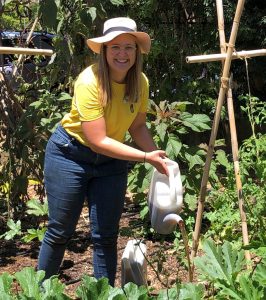
City Farm works only because we have amazing volunteers who come and give their time, knowledge and love to the place. And each person comes with different observations and questions as they interact with the farm and all of us here.
Catch and Store Energy
Water: a precious resource which we never take for granted. We have a Rain2Main system which allows us to automatically switch between captured rainwater and the mains supply. We installed the system to demonstrate to visitors what might be possible in their homes.
Obtain a Yield
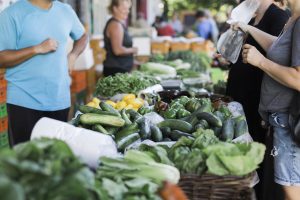
Each year we harvest thousands of kilograms of fresh food which is sold directly through our own Farmers’ Markets or at the City Farm café. Leftover goods are distributed to volunteers or used to provide free meals to folks in need. The key to this principle is that in taking a yield we try to regenerate soil that provided us with a harvest.
Apply Self-regulation and Accept Feedback
To help City Farm operate effectively we must plan how our resources can be applied to best effect. This entails listening carefully to members of the City Farm community to guide our strategic planning.
Use and Value Renewable Resources and Services
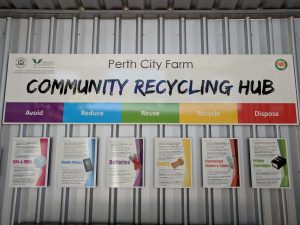
Perth City Farm encourages people to look for creative ways to reduce our demands for using materials and energy. But we also maintain a community recycling hub where anyone can bring particular items for re-use or recycling.
Produce no Waste
All organic matter from our gardens, café and kitchens goes to our chickens, worm farms or compost system, where it cycles back into our growing areas. When organic matter is diverted from landfill it helps avoid creating greenhouse gases and produces a valuable resource for building soil.
Design from Patterns to Details
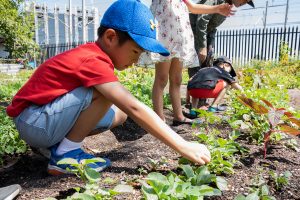
The great pattern of the seasons drives pretty much everything that happens on the farm. The seasons guide our planting, propagating and harvests.
Integrate rather than Segregate
Permaculture seeks to harness the beneficial relationship between plants and animals, especially birds and insects. Diverse plantings can attract welcome predators and limit the impacts of pest species.
Use Small and Slow Solutions
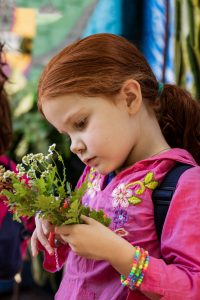
There are many pressing environmental issues facing us right now. But we know we will fail if we charge ahead on too many fronts. Each year we focus our efforts on a few key projects that will help us achieve our aims. Our Kids in the Garden program brought just a small group of wonderful kids who came each week to learn how to grow food in their garden. In doing so, they carry the message to a wider world.
Use and Value Diversity
We partner with a diversity of birds, insects and plants to help create an ecosystem which is healthy and balanced.
Use Edges and Value the Marginal
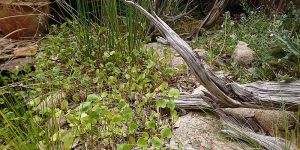
Edges are always so interesting and productive. The edges of the frog pond create shelter for our friendly predators and a place for emergent, edible wetland plants to grow.
Creatively Use and Respond to Change
As the years pass, City Farm evolves to meet new challenges and to harness new ideas and energy. In recent years, we built a new home for our chickens and ducks. This project made a new area accessible to our visitors and created a much more comfortable living environment for our birds.
So that’s a brief intro to permaculture! If you’d like to learn more we regularly run an ‘Intro to Permaculture’ workshop at Perth City Farm. Head to the What’s On page to see if one is coming up.

